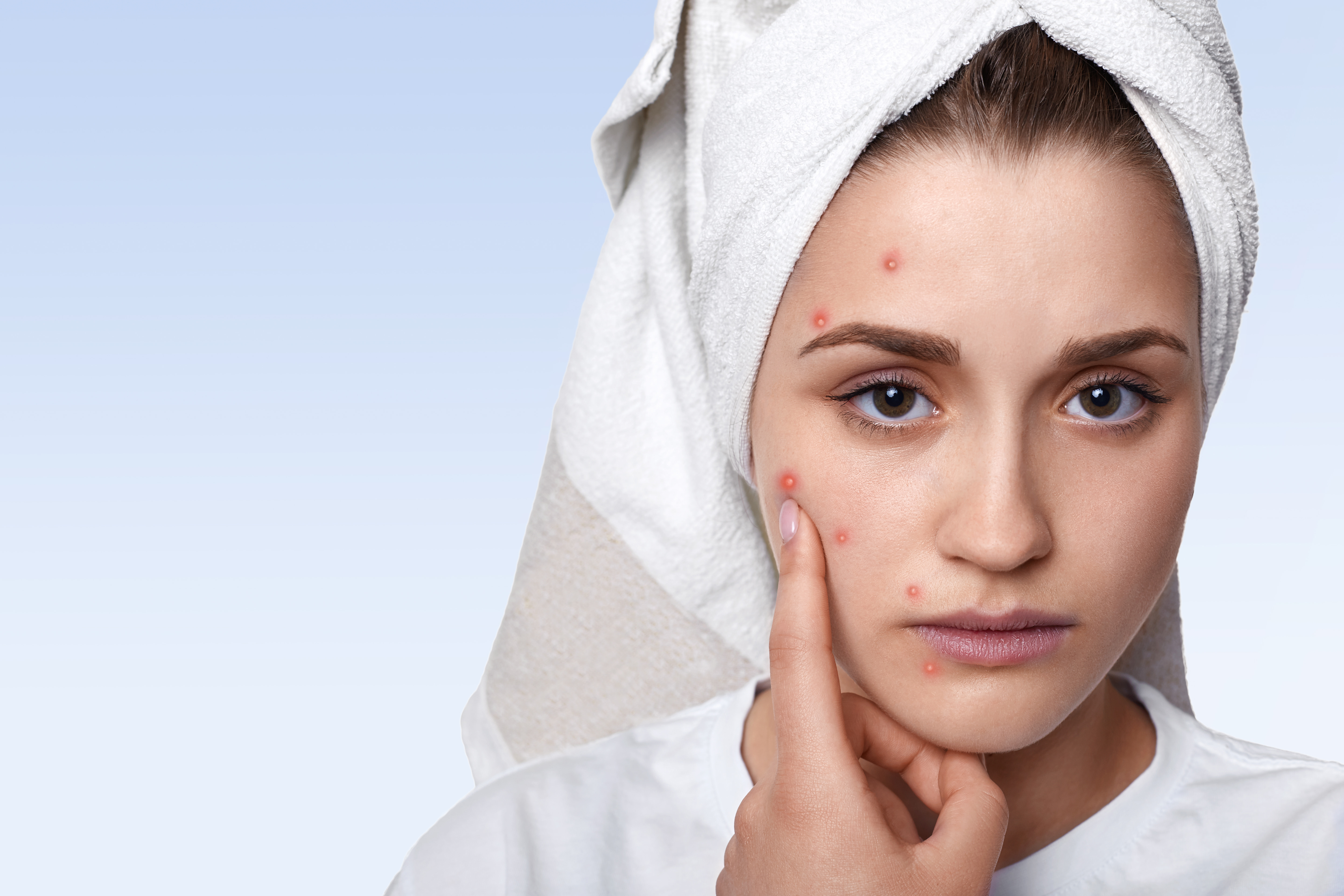- info@manjushasparsh.com
- 9619644646 / 25624646

Acne is not caused by unhygienic skin, contrary to popular perception, and there is minimal evidence that consuming chocolate or oily meals causes acne. Excess oil production, clogged hair follicles, bacteria, and fluctuating hormones are the four basic causes that contribute to acne.
While certain elements about why these items cause acne remain unknown, there are a few things we can be sure of. We're debunking some of the most common acne myths to help minimize misunderstanding and misinformation. After all, in order to properly combat it, you must be able to distinguish between fact and fiction.
Acne is difficult to eradicate. Scrubbing your face will aggravate acne.
Dermatologists advise that instead of cleaning your skin, you should:
Using your hands, rinse the cleanser off with warm — not hot — water.
Just about all acne can now be cleared. Your skin care specialist can assist you to notice clearer skin if you aren't experiencing benefits on your own.
Early care can save a few pimples from turning into a rash with a variety of acne imperfections, including deep, painful cysts. Acne scars can be avoided with early treatment.
To avoid new acne breakouts, you should change your sheets at least once a week. Sheets and pillowcases are covered in dead skin cells and bacteria after one week. These can block pores and cause outbreaks.
Wearing makeup is reasonable as you use non-clogging cosmetics. When you notice one of the following on the label, your makeup is less likely to clog your pores:
Clean your makeup brushes once a week if you use them. This may aid in the prevention of future outbreaks.
You should manage the acne that is festering beneath the surface of your skin in order to keep your skin clear. Many people can keep their skin clear by using an over-the-counter acne treatment and acne-friendly skincare. A dermatologist can help you if you continue breaking out.
A dermatologist can also tell you when you can stop receiving therapy.
Although acne is most common during adolescence, there's no certainty that it will go away. Acne can affect adults in their 20s, 30s, 40s, and even their 50s and 60s. Even if they had few pimples as a teenager, some women can acquire severe acne as adults.
You’ll find claims that a product can clear acne overnight, but that’s just hype. The truth is that acne treatment takes 4 to 8 weeks to work.
Dirt doesn’t cause blackheads. A blackhead forms when a pore becomes clogged with dead skin cells, oil, and bacteria. The black color comes from air combined with the clogging material in your pores, similar to how a sliced apple turns brown.
A retinoid can help remove blackheads and unclog pores.
Popping your acne can actually make it more noticeable. Popping and squeezing your acne can also cause permanent acne scars. Squeezing pimples and blackheads can eventually lead to infections.